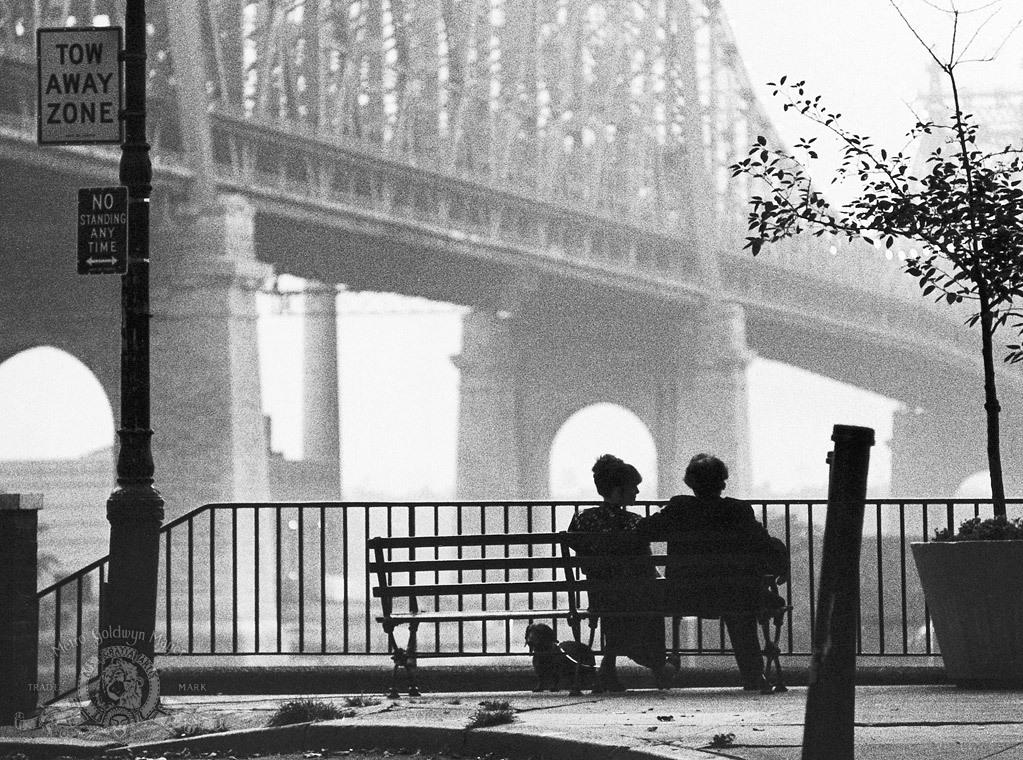Recommended movie: “Manhattan”
Love poem in black and white
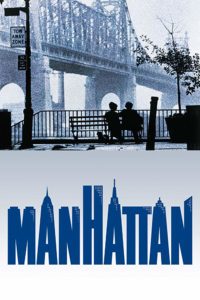 “Intellectual movie is boring!”. How many times have we not heard this complaint, and, by the way, with reason. A good deal of Woody Allen’s movies fall into the category of “intellectual junk”, collecting dust collectors on the shelves of a video rental shop. For someone who has covered a wide range of themes and approaches, Woody Allen will certainly have part of his works framed as boring, and others as geniuses. For the good of everybody and general happiness of the movie nation, “Manhattan” (USA, 1979) is closer to this latter category.
“Intellectual movie is boring!”. How many times have we not heard this complaint, and, by the way, with reason. A good deal of Woody Allen’s movies fall into the category of “intellectual junk”, collecting dust collectors on the shelves of a video rental shop. For someone who has covered a wide range of themes and approaches, Woody Allen will certainly have part of his works framed as boring, and others as geniuses. For the good of everybody and general happiness of the movie nation, “Manhattan” (USA, 1979) is closer to this latter category.
The beginning of the film captivates, and, at the same time, it scares. The opening brings some New York landscapes, with the sound of George Gershwin’s beautiful Rhapsody in Blue, bringing the viewer to the Big Apple, that one which lies in everyone’s imagination. However, the black-and-white photography and Allen’s off-screen narration leave people with a grain of salt: “He loved New York City, even though it was a metaphor for the decadence of contemporary culture.”
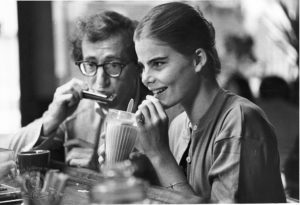 The story is complex, just as real life does. Allen lives Ike Davis, a frustrated television writer who dreams of writing his first book. Having survived two divorces, Ike dates Tracy (Mariel Hemingway), a beautiful seventeen-year-old girl, to whom he says they will never have a future together, since he is twenty-five years older than her.
The story is complex, just as real life does. Allen lives Ike Davis, a frustrated television writer who dreams of writing his first book. Having survived two divorces, Ike dates Tracy (Mariel Hemingway), a beautiful seventeen-year-old girl, to whom he says they will never have a future together, since he is twenty-five years older than her.
His best friend, Yale (Michael Murphy), has a solid marriage but maintains a relationship with another woman. His lover, Mary Wilke (Diane Keaton), an intellectual journalist, argues a lot with Ike from the first encounter, but she gradually develops a friendship with the writer.
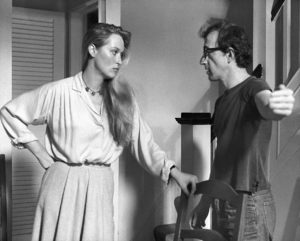 Ike has his own problems, as well as resigning in a rush, he discovers that the ex-wife, who left him for another woman, is writing a book about their marriage. To complicate even more, he begins to get emotionally involved with Mary, even though she has not yet separated from Yale. Assuming their new romance, Ike breaks up with Tracy to stay with Mary. Stop. If I tell talk more, I ruin the surprise.
Ike has his own problems, as well as resigning in a rush, he discovers that the ex-wife, who left him for another woman, is writing a book about their marriage. To complicate even more, he begins to get emotionally involved with Mary, even though she has not yet separated from Yale. Assuming their new romance, Ike breaks up with Tracy to stay with Mary. Stop. If I tell talk more, I ruin the surprise.
Despite Allen’s incessant verbiage, in his constant neurotic-obsessive pattern, the story flows smoothly, because human relationship is a universal element. In addition, the beautiful panchromatic photography and the delightful soundtrack full of famous melodies, transports the viewer to a world created by Allen just to our delight.
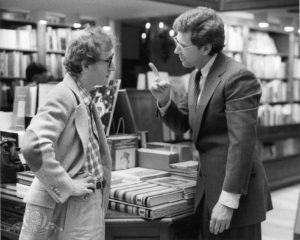 In that world, New York is romantic and special, with nothing to do with terrorist attacks or savage capitalism. There are only beautiful façades, silhouettes starlit by lights, inviting windows and cozy restaurants. Even Ike’s bachelor flat, with its rusty water and noise from neighbors, looks truly picturesque. In this parallel universe, it is natural to walk with the dog in the middle of the night or receive a call from the analyst at three in the morning.
In that world, New York is romantic and special, with nothing to do with terrorist attacks or savage capitalism. There are only beautiful façades, silhouettes starlit by lights, inviting windows and cozy restaurants. Even Ike’s bachelor flat, with its rusty water and noise from neighbors, looks truly picturesque. In this parallel universe, it is natural to walk with the dog in the middle of the night or receive a call from the analyst at three in the morning.
The analyst is a constant in the Woodyan universe, because everybody is totally neurotic. The honorable exception is due to Tracy, who, in her seventeen years, seems to be the most mature character in this whole story.
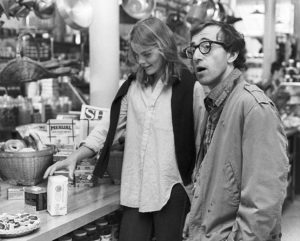 The cast is excellent, not only veterans Allen and Keaton, who lived together at the time, as well as newcomer Mariel Hemingway, in his second work in the movies. The first one was the crime drama “Lipstick”, with her sister Margaux in 1976.
The cast is excellent, not only veterans Allen and Keaton, who lived together at the time, as well as newcomer Mariel Hemingway, in his second work in the movies. The first one was the crime drama “Lipstick”, with her sister Margaux in 1976.
This film was released on DVD and later on BluRay, but neither one brought more than movie’s trailer. However, the widescreen format was kept, allowing us to enjoy the beautiful photography of the film. This seems to have been demanded by Allen himself, because even in VHS the screen format was kept as in the cinema. The audio features English and Spanish options 2.0, and the subtitles in English, Spanish and Portuguese.
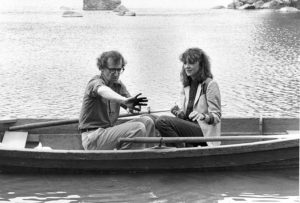 “Manhattan” was another daring of Allen, who came from the award-winning “Annie Hall.” Without caring about industry standard, he focused on making a black and white movie, dealing with his favorite theme, New York City. More than a simple declaration of love for the city, this film is also a manifesto to the youth, as a hope for the redemption of humanity.
“Manhattan” was another daring of Allen, who came from the award-winning “Annie Hall.” Without caring about industry standard, he focused on making a black and white movie, dealing with his favorite theme, New York City. More than a simple declaration of love for the city, this film is also a manifesto to the youth, as a hope for the redemption of humanity.
This film was nominated for Academy’s Oscars for Best Screenplay, and Best Supporting Actress (Mariel Hemingway). The most important prizes were from BAFTA: Best Film and Best Screenplay, and César for Best Foreign Film. In total, there were 15 awards and 23 nominations worldwide.
Perhaps the filmmaker was predicting his own destiny when, years later, he would live a love affair with the adopted daughter of his ex-wife, Mia Farrow, in a proof that sometimes it is the Life that imitates Art.
Original Title: “Manhattan”

